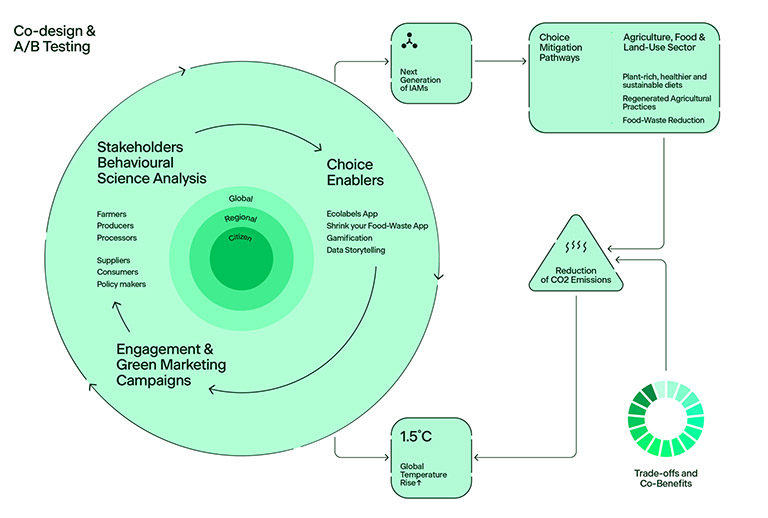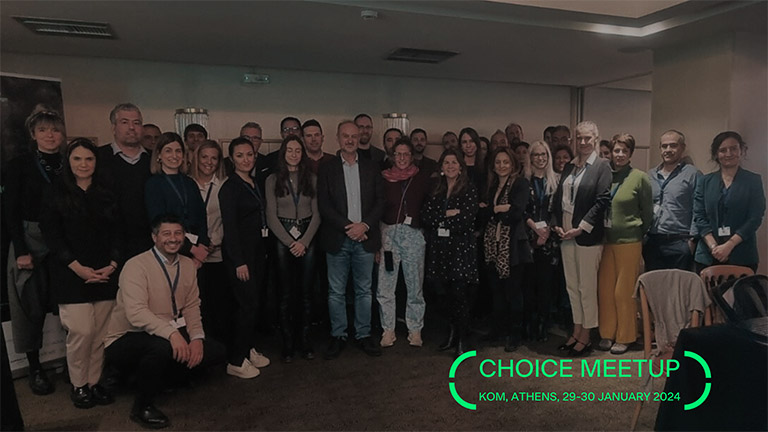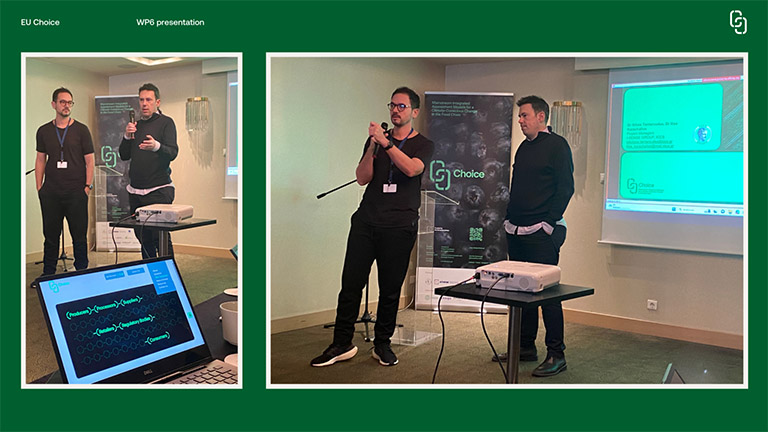DURATION: 01.11.2023 to 31.10.2026
BUDGET: 200.000 €/ 4 936 472,50 €
FUNDING: HORIZHORIZON-CL5-2022-D1-02, Climate Sciences and Responses, RIA
ABOUT CHOICE
 CHOICE: Mainstreaming Integrated Assessment Models by embedding behavioural change and actor heterogeneity, and increasing their outreach to citizens, communities and industrial actors is a three-year HORIZON Research and Innovation Action funded by the topic HORIZON-CL5-2022-D1-02-03 Improvement of Integrated Assessment Models in support of climate policies. CHOICE is one of the four projects funded by CINEA under this call.
CHOICE: Mainstreaming Integrated Assessment Models by embedding behavioural change and actor heterogeneity, and increasing their outreach to citizens, communities and industrial actors is a three-year HORIZON Research and Innovation Action funded by the topic HORIZON-CL5-2022-D1-02-03 Improvement of Integrated Assessment Models in support of climate policies. CHOICE is one of the four projects funded by CINEA under this call.
THE CHALLENGE
The Intergovernmental Panel on Climate Change (IPCC) has issued a stark warning: the planet must achieve zero emissions by 2050 to avoid dire climatic consequences.
Besides the supply-side mitigation actions, this ambitious goal necessitates “substantial demand-side mitigation” and significant behavioural and lifestyle changes, especially in major industries like Food and Agriculture, which are among the biggest contributors to global CO2 emissions.
Policymakers rely on Integrated Assessment Models (IAMs) for modelling climate stabilization pathways and take better informed decisions. Nevertheless, the mitigation options traditionally focused on IAMs are the supply-side measures, whereas less attention used to be paid to demand-side and food system representation, due to the inherent complexity and actor heterogeneity.
In response to the climate urgency, CHOICE strives to mainstream Integrated Assessment Models (IAMs) by embedding behavioural change and actor heterogeneity, and increasing their outreach to citizens, communities and industrial actors in the Food, Agriculture and Land Use sectors.
Leveraging distinct disciplines, technological and scientific advances, as well as large-scale awareness and engagement campaigns under an innovative framework, our goal is to enhance IAMs to play a pivotal role towards meeting the 2050 zero emissions goal.

VISION
CHOICE wants to help everyone involved in food, farming, and land use to make better choices for the climate. It uses models IAMs that show the impacts of our choices, and is working to make these models more realistic and relatable.
These models don't just look at greenhouse gases and temperature increases. They also show how these choices can help improve health, protect wildlife, and ensure we have enough food.
By using a mix of social science and marketing, CHOICE wants to speed up action to slow down climate change.
It's also exploring how smaller actions can make a big difference, and figuring out which actions and policies work best.

OBJECTIVES
- To create a new generation of climate change-aware citizens, communities and industry actors, by mainstreaming IAMs’ outputs and embedding them into established applications and services related to food consumption, production and supply chain. Data storytelling methods, immersive technologies, gamification, as well as social incentives and emotional appeals will be exploited in this process.
- To improve the accuracy and policy-relevance of well- recognised Integrated Assessment Models, by introducing and improving their representation of actor heterogeneity and behavioural aspects, both playing a crucial role in a realistic mapping of societal transitions.
- To provide a concrete understanding for demonstrating how small to medium scale actions in local level related to the adoption of food-oriented demand-side measures, may be upscaled to a global level, taking consideration of different socio-economic profiles, distributional and equity effects.
- To improve the acceptance of IAMs to non-expert groups of stakeholders and decision makers, using innovative ways to engage them in the whole process chain, from results visualization to scenario building. This will also foster the open science approach of CHOICE and the capacity building activities among different research teams.
- To explore and quantify trade-offs from the adoption of its proposed actions, including in the fields of biodiversity, health, food security, towards the achievement of UN Sustainable Development Goals (SDGs).

OUR ROLE IN THE PROJECT
To review the most impactful digital tools, in terms of outreach and success in customer churn or food supply chain actors’ engagement, that are targeting the food related mitigation measures explored in CHOICE. To list and cluster underlying engagement methodologies, technical decisions that have an impact therein (e.g. registration), technologies augmenting the user experience (e.g. gaming, AR and other immersive technologies), reward schemes (positive or negative feedback to praise or punish the motivation to adopt a certain measure), technical design choices, attempting to map key artefacts of success and lessons learned, as well as things to avoid.
To participate in the identification of Tradeoffs and co-benefits with biodiversity, health, and other SDGs, by looking at how actions to combat climate change can also help with other sustainability goals. While cost-effectiveness is important, it's not the only thing to consider. CHOICE will highlight actions that might not be the cheapest, but could help us achieve multiple sustainability goals at once (eg. the connection between our diets and health. Using consumer behavior data to see how climate action impacts different groups of people. This will also help us understand how these actions could affect hunger and nutrition)
To lower emissions from farming and store more carbon in the land, we need to shift towards regenerative agricultural practices and restore carbon-rich ecosystems. This can have a big positive impact on biodiversity, or the variety of life on earth. A new tool will be used that considers location to help design scenarios with stakeholders.
To design, coordinate, and evaluate of the CHOICE pilot demonstrations, by orchestrating the organization and timeplan of pilot demonstrations and monitor their progress. A Pilot Action Plan (PAP) will be created to comprise indicators for assessing the impact of CHOICE digital campaigns and tools, (evaluating their reliability, acceptance, user-friendliness and transferability, and ultimately their effectiveness towards the desired objective: accelerate climate action on the selected mitigation actions.) UWMH will be monitoring and managing the two overseas pilots (Colombia & South Africa).


